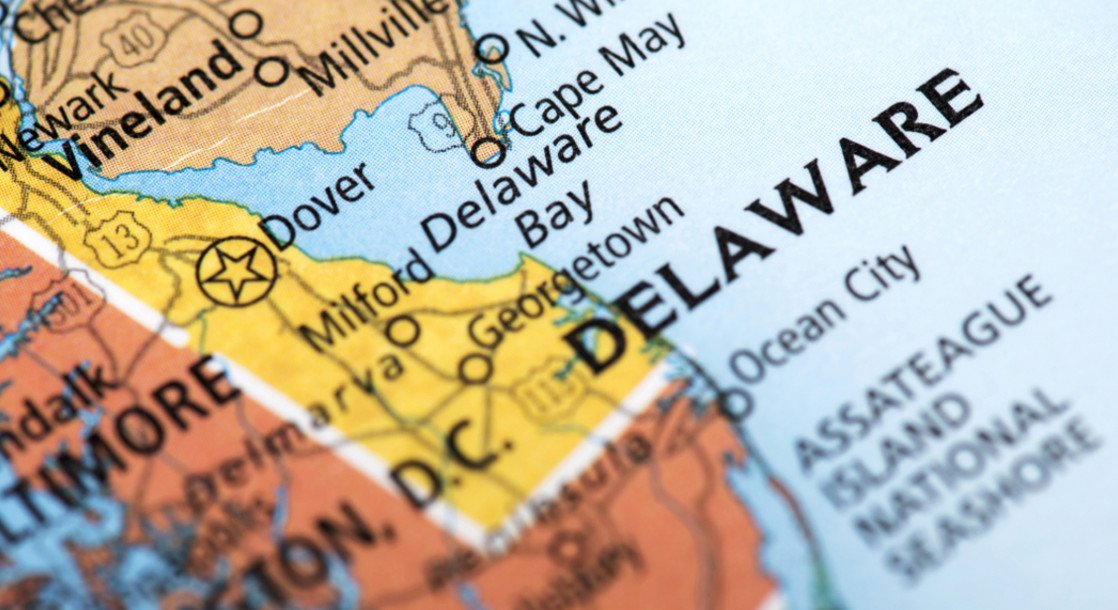Photo via omersukrugoksu
The green rush is moving east. As Massachusetts and Maine continue to try and sort out regulations for voter-approved recreational cannabis sales, and advocates wait with bated breath for more news out of New Jersey and New York, the East Coast is poised to add yet another piece to America’s legalization puzzle, with state regulators in Delaware closing in on a comprehensive recommendation to legalize weed as soon as next year.
Established earlier this summer, Delaware’s Adult Use Cannabis Task Force is responsible for informing residents and lawmakers alike about what a future with legal cannabis might look like, producing a detailed report and subsequent recommendations for recreational legalization in The First State.
According to Delaware’s local 105.9 FM News, the group has already established progressive opinions on a number of legalization issues, giving local cannabis advocates lofty hopes about the future of East Coast kush.
"The Department of Safety and Homeland Security reported that legalization would reduce the dangerous criminal market,” said Zoe Patchell, president of the Delaware Cannabis Advocacy Network — who says she has attended every task force meeting — to 105.9 FM News. “We are excited about this very serious and necessary conversation taking place. Progress is definitely being made and we are one step closer to legalization, and it seems that the state is finally recognizing the complete and utter failure that cannabis prohibition is, and are now having the necessary conversations to repeal this failed, costly policy and keep our state economically competitive."
Delaware Representative Helene Keeley and State Senator Margaret Rose Henry first announced their intentions to present House Bill 110, or the “Marijuana Control Act” in October of 2016, but found pushback from Governor John Carney when Keeley formally introduced the bill last March, putting the legalization bill on the back burner and prompting the formation of the adult use task force
“I want to get as many people at the table so we’re not going back and piecemealing changes to the bill, and going back and fixing things that may arise after the bill is signed into law that Colorado had to do once it was started,” Rep. Keeley told public radio station WHYY in May, one month before the task force’s inception.
With the pre-legalization regulatory suggestions almost set, Delaware could become the first state to end cannabis prohibition by way of legislation, leapfrogging lawmakers in Vermont, who passed their own legalization bill only to see Governor Phil Scott veto the legislation in the 11th hour.
But if you listen to Patchell, the task force's number crunching has made legalization seem to good to pass up.
"Different agencies have been making recommendations based on their needs and areas of focus. For example: the Department of Health has recommended stringent and robust labeling as well as strictly organic cultivation for this plant, all of which we agree with," Patchell said. "The Department of Finance informed the task force that the taxes will likely exceed the initial projections and net Delaware anywhere from around $25-27 [million] in tax revenue annually.”
Under HB110, Delaware would move to “regulate and tax marijuana in the same manner as alcohol.” Breaking from Delaware's reputation as business and retail tax haven, legal cannabis would be subject to substantial taxation, similar to the state’s beer, wine, and spirits.
"It's an opportunity to create a new industry that would include agricultural, processing and retail jobs throughout the state," Rep. Keeley told 105.9 News. "This bill creates professional, well-regulated framework for marijuana production and sales for adult use; it provides protections for residents while generating revenue for various programs throughout the state."
According to the Associated Press, Delaware’s Adult Use Cannabis Task Force will meet again today, with a specific focus on “public safety and criminal justice issues.”
Final recommendations from the panel are expected in the early months of 2018, with continued legislative action on HB110 expected to follow shortly thereafter — fingers crossed!











